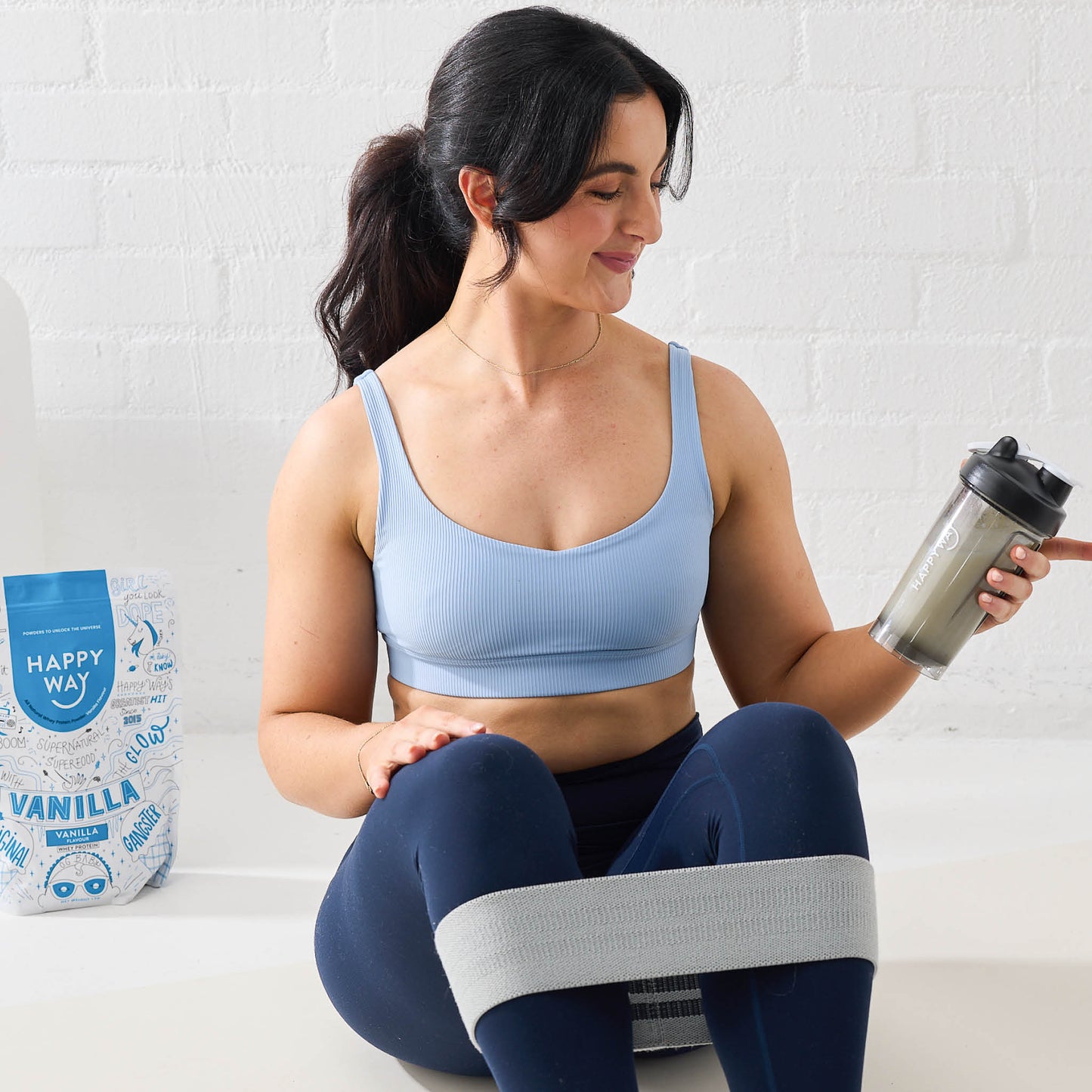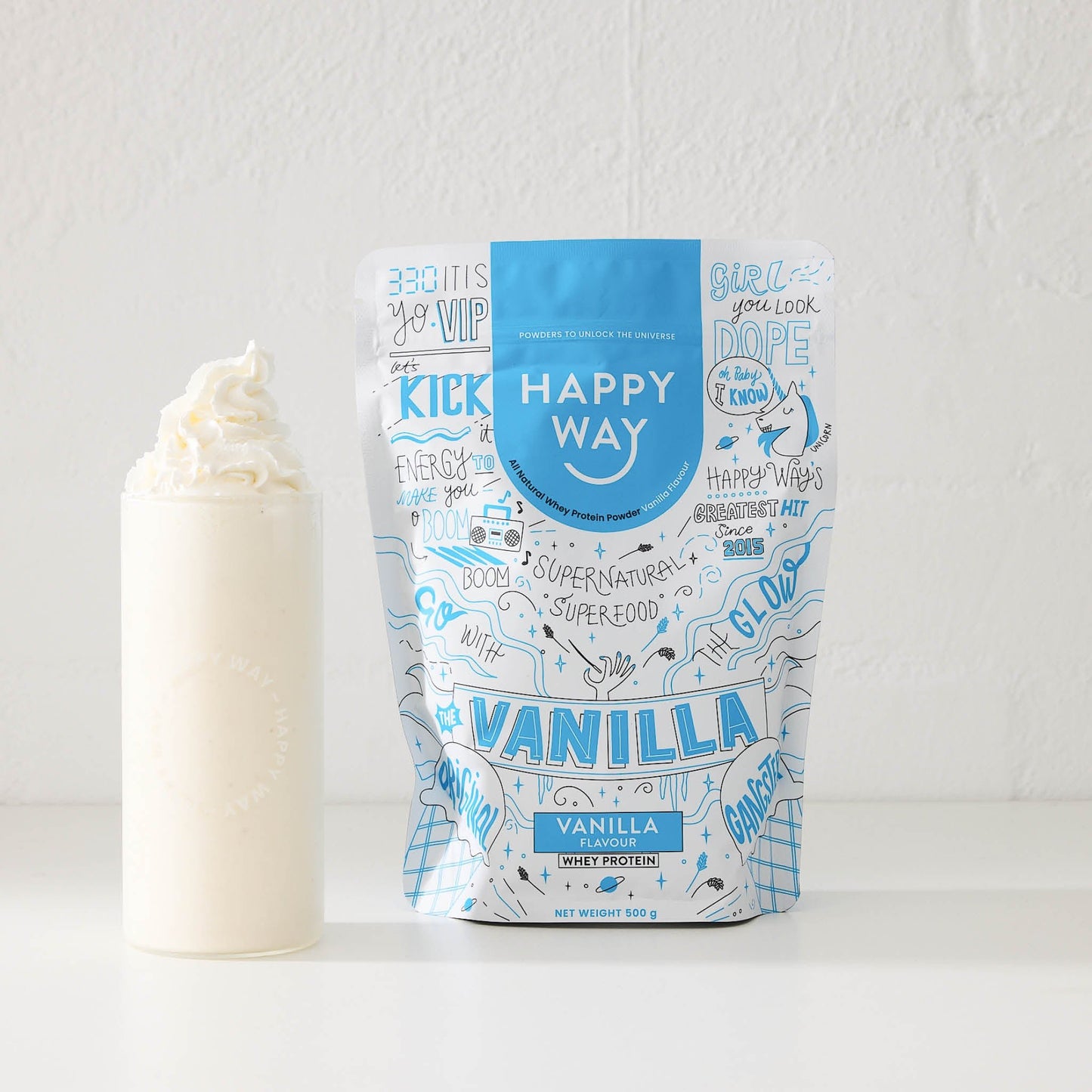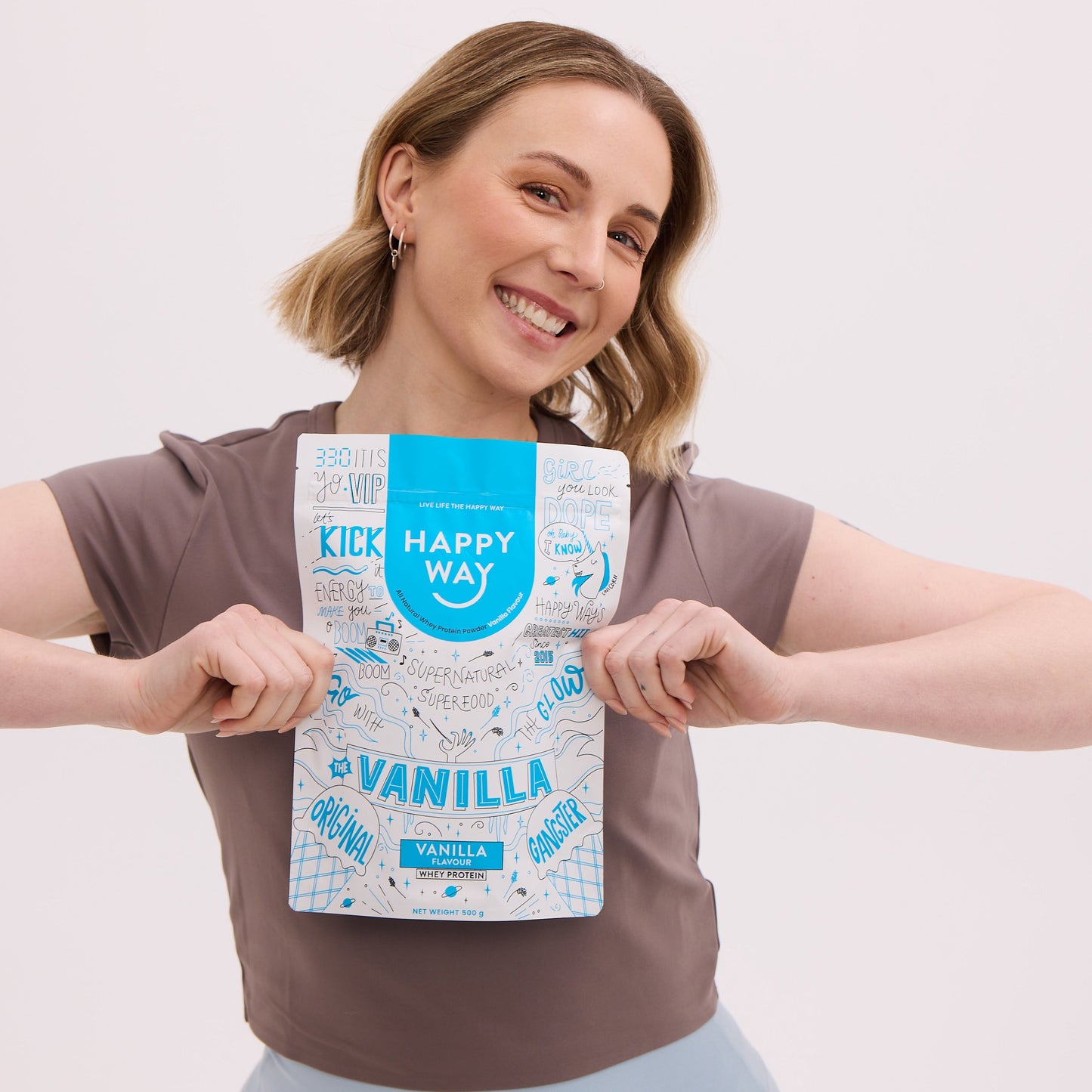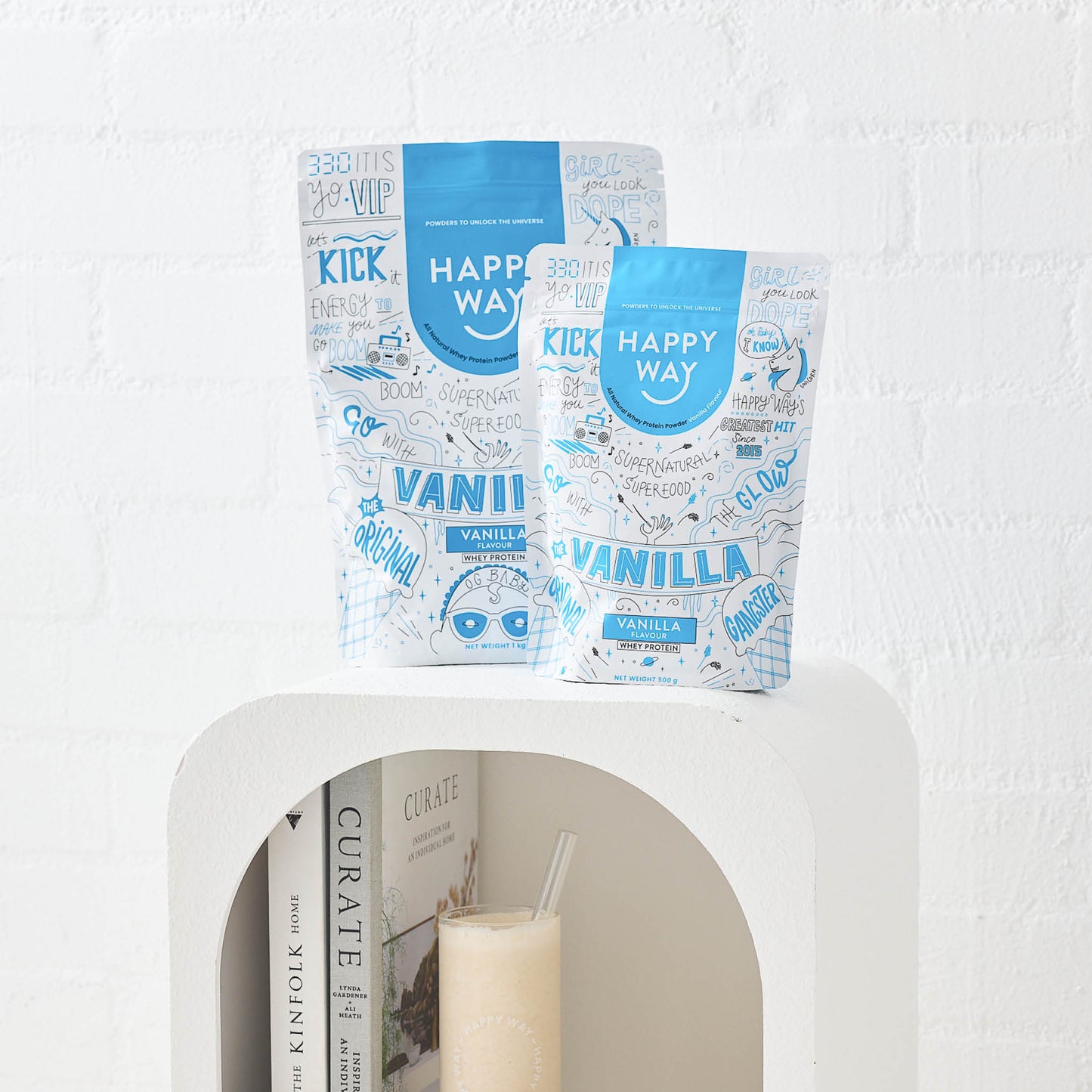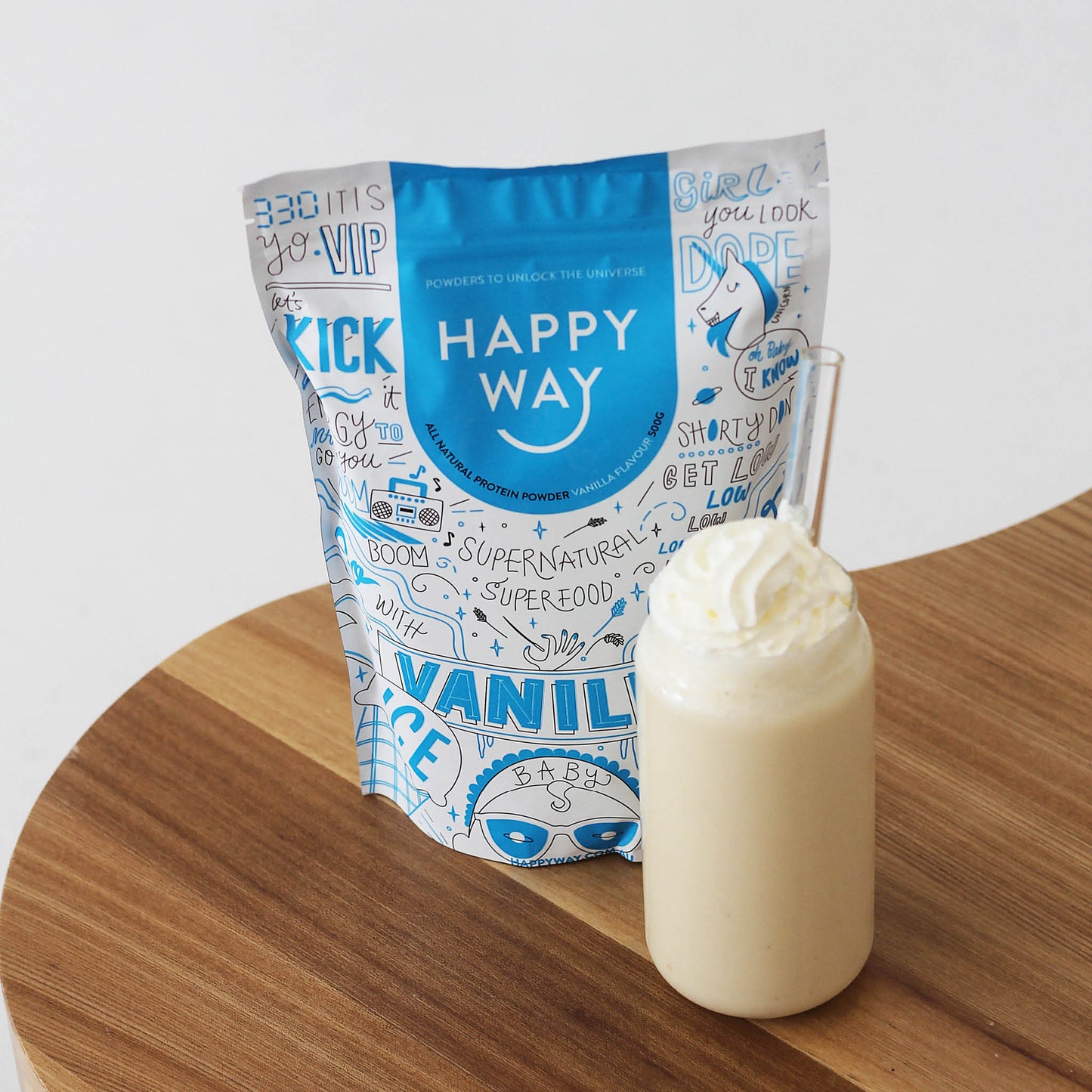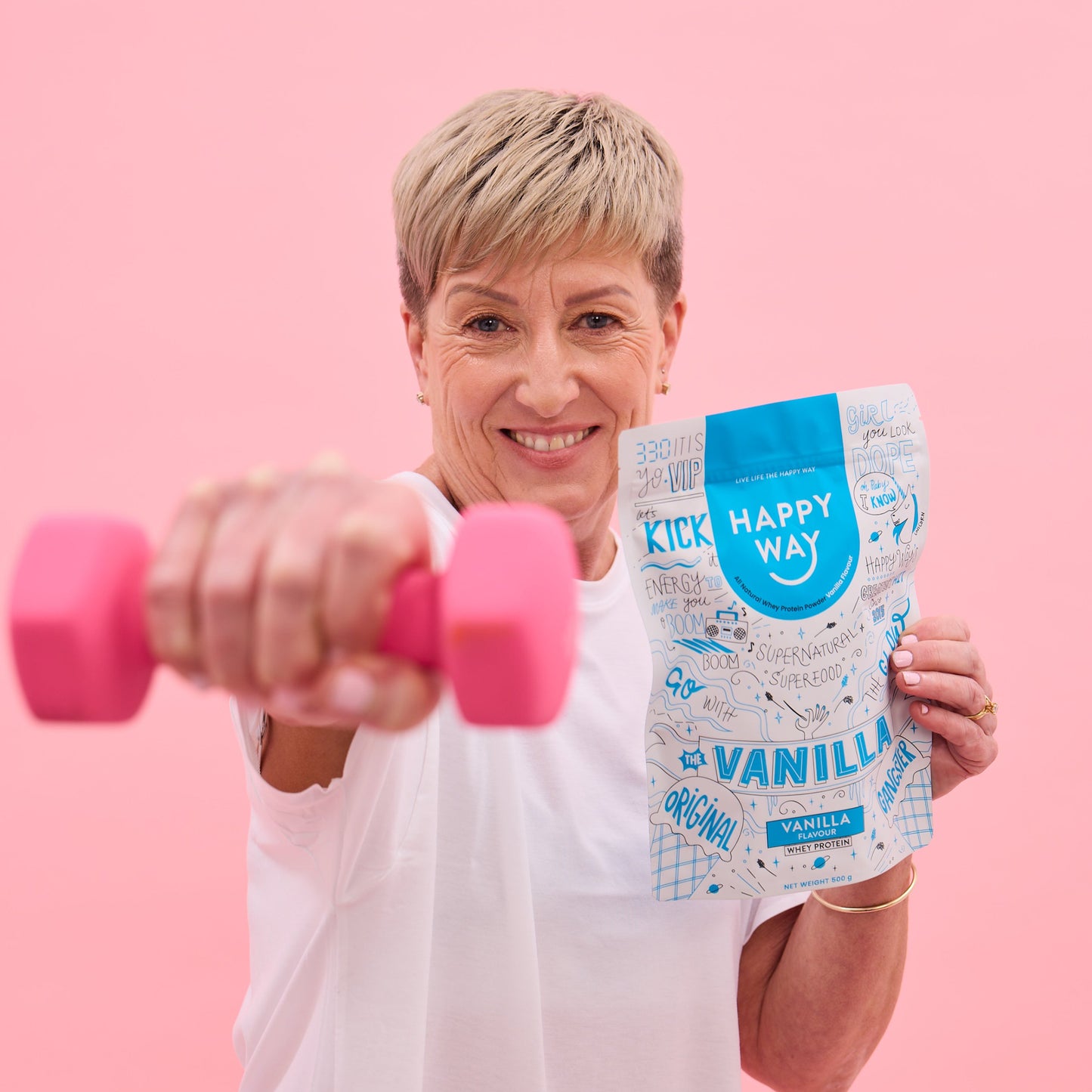If you've clicked on this post, it might mean you are feeling a little stressed at the moment and are after some helpful tips to manage it. We're glad you're here, friend. We are here for you.
At some stage, you might feel the pressure rising at work, school, home, or university. Or, you might be in the middle of buying your first home and are feeling overwhelmed. As your workload piles higher and higher, you might be unsure where to begin! We've been there. So, let us inspire you with some tips that we hope can help you on how to relieve stress.
We spoke to our resident Clinical Nutritionist, Malissa, as well as Ben, Yoga Teacher and Studio Manager. They've given us some of their helpful tips on how to ease stress.
Malissa's Tips
"My top tips on relieving stress levels all include giving your body and mind all the self-love and care it deserves," says Malissa.
"Put yourself first, learn to say NO, don’t take things personally, and know you are worthy and are trying your best."
Malissa says it's important to take some time to just breathe.
"Taking deep belly breaths encourages the parasympathetic nervous system (PNS) to become more dominant," explains Malissa.
In case you're wondering, PNS is the "rest and digest" system.
"This will encourage your body to calm, conserve energy levels and slow the heart rate. So, if you are feeling very stressed right now, I encourage you to start the day with a deep belly breathing exercise for at least 10-15mins." This is a great way on how to relieve stress.
Malissa also suggests reducing stimulants from your diet. So, this includes decreasing consumption of caffeine, foods that are rich in sugar, alcohol, and anything that may be highly processed. These types of stimulating foods add to stress and anxiety levels, so instead, nourish your body with chamomile tea, serotonin rich foods like eggs, pineapple, tofu, nuts, and seeds, and a variety of fruits and vegetables.
Here are some foods that can help reduce levels of stress and anxiety:
- Foods rich in tryptophan: Tryptophan is a precursor for serotonin (the happiness hormone). Foods include chicken, eggs, fish, peanuts, and pumpkin seeds.
- Antioxidant-rich foods: Acai powder, cacao powder, berries, capsicum, broccoli, and Brazil nuts.
- Probiotic-Rich Foods - 95% of your serotonin is made in your gut and Probiotics will nourish your gut microbiome. Food to consume include kefir, kimchee, sauerkraut, coconut yoghurt, and kombucha.
So, to reinforce, if you are feeling stressed at the moment, steer clear from alcohol, caffeine, highly processed foods, smoking, and sugar. If you’re looking for ways to relieve stress, this is definitely helpful!
"Each of the foods mentioned above act as stimulants and can increase your levels of cortisol (stress hormone). Smoking, alcohol, caffeine etc. can also deplete the absorption of beneficial nutrients such as antioxidants, vitamins and minerals which can result in you feeling more stressed," says Malissa.
You've probably heard it before, but exercise is also vital.
"Any form of movement or exercise is essential to keeping stress levels low," explains Malissa.
"When we exercise, we produce endorphins. Endorphins are brain chemicals that act as natural pain-killers and promote feelings of happiness."
"The production of endorphins can reduce and alleviate stress levels. If you don’t have time to hit the gym, a simple walk in nature, stair climb or yoga stretch at home will suffice."
We think you'll find the next tips on how to relieve stress quite appealing.
"Other activities that can promote the production of endorphins and reduce stress levels also include massage therapy (treat yo self), meditation, and dancing in your underwear (my favourite)."
We love your style, Malissa.
Ben's Tips
"As most people will know, stress can be caused by a number of different factors and show up in many different ways," says Ben.
"There are short term stress and long term stress, stress directed to a specific issue, and stress that is caused by a layering of several things at once."
"In my experience as a yoga teacher, there are a few simple ways on how to relieve stress, regardless of the root cause."
Ben says an easy one is breath work (or Pranayama in Sanskrit).
"Focusing on the quality of your breath is a form of mindfulness that draws us out of future-oriented thinking and into the present moment," explains Ben.
Doing this can assist with stress-induced anxiety, as most anxiety relates to forecasting possible negative scenarios.
What about exercises and activities that help with stress?
"A simple but effective breath exercise looks at extending the length of the exhale part of your breath. To start with you cultivate an even breath rhythm (usually 4 counts in and 4 counts out)," says Ben.
"From here you can choose to either shorten the inhale to 3 counts and keep the exhale at 4 counts or simply extend the exhale breath to 5 and keep the inhale as is (depends on your lung capacity)."
"By lengthening the exhale breath, the latest neuroscience research tells us that we stimulate the parasympathetic nervous system, which is the mechanism which governs our rest and digest response, as opposed to the sympathetic system which governs fight or flight."
So, when it comes to how to relieve stress, how often should we participate in yoga and meditation?
"Like anything you do, the more often you practice, the greater understanding you will have of that thing," describes Ben.
"As yoga can be a lifelong practice, people will naturally ebb and flow in their commitment, sometimes more drawn to the physicality of the asana, sometimes to the pranayama work, or maybe more to the concepts and teachings."
"At my work place, we tend to recommend three physical practices a week as a great way to notice a progression in your strength and flexibility, but also your ability to sit in safe discomfort or apply the lessons learnt on the mat back out into your everyday life."
Bens says that more than this is great too. Some people often mix yoga into their daily routine. This is a great idea for how to relieve stress!
"Similarly, meditation or mindfulness exercises can be done daily to experience some really tangible benefits. A meditation practice doesn't have to be a scary commitment; it can be 5-10 minutes of sitting comfortably and simply observing the breath."
Can anyone participate in yoga and meditation?
"Simply put, yes. The physical side of yoga is varied and ranges from gentle restorative classes for those less mobile, to the deeply challenging for those who like to explore their physical limits."
"It offers a scale for you to adapt your practice to; however, it may need to sit, in your unique body.”
"As I mentioned earlier, a 5-minute meditation practise can be developed readily and is as valuable for your wellbeing as sitting still for hours." We love this way on how to relieve stress!
Ben meditates 2-3 times a week for approximately 15-20 minutes each time. He likes to prioritise it more and build up to a daily practice, but he's realistic with what he can currently sustain.
"I don't want to force myself to do it because I simply should," he says.
"I think start with however long you believe is sustainable for you. Don't let the goal or idea of daily practice prevent you from just getting started."
We hope you like Malissa and Ben's tips and find them useful!
Don't forget to contact trusted friends and family; speaking with loved ones is essential, so reach out if you are feeling stressed or anxious.
Take good care of yourselves, friends. There are many great support networks too, so get involved, check in with your loved ones, and remember to take deep breaths. You've got this.






